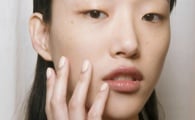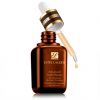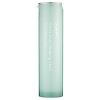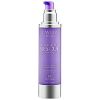Even if you sleep it off on Saturday, booze wrecks your sleep pattern. A drink or two may help you fall asleep, but even if you get the recommended eight hours, alcohol can mess with a crucial stage of sleep, says Matthew Mingrone, M.D., lead physician at the EOS Sleep Center in California.
There are five stages we experience in sleep, and each one lasts about an hour and a half. Stage one is transitional -- when you go from being awake to being asleep. Stage two is marked by high brain activity, and your body temperature starts to drop -- it's also when catabolysis (skin renewal) generally peaks. Stage three is the transition between light sleep and deep sleep. Stage four is sometimes called delta sleep -- it's a deep sleep that lasts for 30 minutes. And finally, stage five is REM (rapid eye movement) sleep, when your muscles become more relaxed but your brain becomes more active.
While the importance of REM sleep isn't fully understood, most scientists believe your brain forms memories during this stage. And lack of REM sleep has been linked to depression. But here's the real punch line: the less REM sleep you get, the more tired you feel in the morning.
Sleep experts think alcohol can cause stage four to last longer, which curbs the amount of quality REM sleep you get. "Even one to two drinks before bed could throw you off," says Mingrone. "The longer the time between your last drink and hitting the pillow, the better. "
SEE NEXT PAGE: Yet another reason to dodge carbs, crankypants.
There are five stages we experience in sleep, and each one lasts about an hour and a half. Stage one is transitional -- when you go from being awake to being asleep. Stage two is marked by high brain activity, and your body temperature starts to drop -- it's also when catabolysis (skin renewal) generally peaks. Stage three is the transition between light sleep and deep sleep. Stage four is sometimes called delta sleep -- it's a deep sleep that lasts for 30 minutes. And finally, stage five is REM (rapid eye movement) sleep, when your muscles become more relaxed but your brain becomes more active.
While the importance of REM sleep isn't fully understood, most scientists believe your brain forms memories during this stage. And lack of REM sleep has been linked to depression. But here's the real punch line: the less REM sleep you get, the more tired you feel in the morning.
Sleep experts think alcohol can cause stage four to last longer, which curbs the amount of quality REM sleep you get. "Even one to two drinks before bed could throw you off," says Mingrone. "The longer the time between your last drink and hitting the pillow, the better. "
SEE NEXT PAGE: Yet another reason to dodge carbs, crankypants.


































